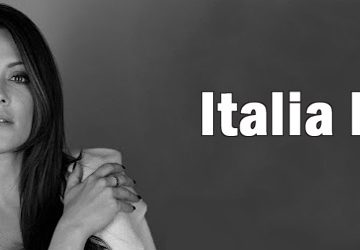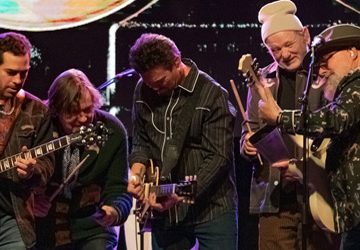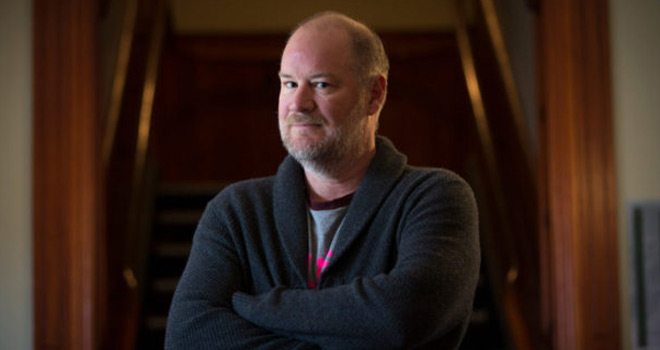
A bold step forward for the New Zealand born filmmaker, Timpson recently took the time to talk about Come to Daddy, transitioning from producing to directing, his insanely large 35mm collection, his personally owned film festival, Stephen McHattie, and much, much more.
Cryptic Rock – You have been such a champion producer over the last several years, bringing unique films out into the spotlight. What was it like stepping into the director’s chair and finally tackling your first feature? Did your producing experience dictate your directing style in any way?
Ant Timpson – The transition over to directing felt more than it was, mainly because of the pressure I was placing on myself to deliver the goods. You can easily be your own nemesis by going down the rabbit hole of over-analyzing the what-ifs and worst case scenarios. So much of the transition was mental gymnastics. My background in producing didn’t dictate my style too greatly – the only concrete thing I can think of was the incessant internal mantra of ‘make your days,’ which meant I was cracking my own whip unnecessarily at times. Time is style’s greatest adversary.
Cryptic Rock – That’s certainly one of the most pragmatic, smartest answers. Yes, over-analyzing can be death sometimes; either jump in with both feet or not at all. That said, it is wonderful how oddly universal the themes of Come to Daddy felt. Everyone has or has had a father: some have broken relationships with them, some don’t. Where did the inspiration come from when conceiving this story? Dare we ask is any of it is autobiographical?
Ant Timpson – There’s some autobiographical qualities to the work from both myself and Toby, the writer. I wrote a piece about the background journey that can be read here. Toby and I were pleasantly surprised how much the daddy issue stuff weighs in for certain folks who see the film. I honestly didn’t think they’d connect to that side of things as strongly as they have, so that’s been a lovely twist in the tale for us. We wanted to cache that familial material within the framework of a bonkers Thriller, so we never knew if it would pay off in terms of emotional heft. So, yeah, happy it has.
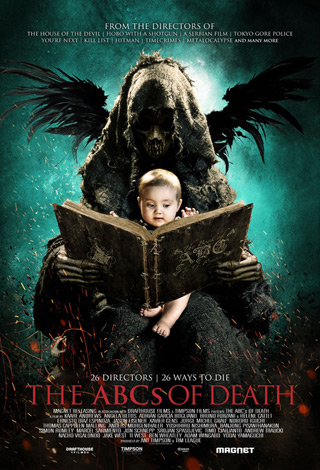
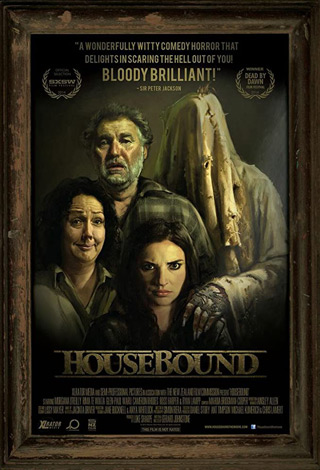
Cryptic Rock – Yes, Horror films that deal with universal themes are great. This one certainly does so in a very unique fashion. A favorite, stand-out sequence, hands down, is when Elijah Wood’s character Norval has a fight to the death with Dandy, played by Simon Chin. It’s insane in all the best ways and will no doubt go down as an iconic moment in the film. What was it like to shoot that scene? How much of it was strategically planned beforehand and how much was spontaneously in the moment?
Ant Timpson – That was a lot of fun to do. We had some very game actors in Elijah and Simon who were down for anything. We also had a cool stunt team that did some pre-vis work for me, and we collaborated on how to do it all safely but make it as visceral as all hell. I had some very specific ideas for the violence in the film – wanted it to be sudden and awkward with some dark humor interwoven.
I wanted it to be very clearly staged – with minimal cuts and angles – to give it some primal impact. It’s a transformative scene for the character so we needed to see his face as much as possible – and to get the sense that he’s gone all in Straw Dogs style. I also wanted to push it so that the audience becomes implicit in its enjoyment of the violence, and just when it feels like entertainment, to go a little bit further and make them feel a lil’ dirty for enjoying something so nasty.
So there was lots of blocking and staging – I wanted certain visual gags to pay off. One we had didn’t, but I loved that I tried to make it work. In the script, Simon’s character Dandy is trying to break the cellophane with his one tooth left so he can breathe, but to do this I would’ve had to nearly stop the action to convey it properly – but I think it kinda works as it is. It was the scene I felt most confident in actually planning out. The DP and I spent a long time about how we could make it pop, and Elijah, god bless him, was game to go ape-shit in the best way. So, yes, it was all planned out, and there’s a great visual photo essay of it all coming together which is great to have – that should be on a blu-ray somewhere along the line.
Cryptic Rock – Right, there is nothing worse than trigger-happy editing when it comes to fight scenes, which is why it is quite impressive how this was executed. It being your directing debut is even a bigger accomplishment. Stephen McHattie’s chilling performance in this is one for the books. Is he psychotic in real life? What kind of preparation did you two do together in pre-production, if any? Is he the kind of actor who goes moment to moment or did he want to rehearse?
Ant Timpson – Stephen McHattie is a Canadian national treasure. And no, he is not psychotic in real life – he’s just a very stoic, no bullshit type of guy. We had no rehearsal on this film; we all just jumped in guns blazing. They were all very experienced actors so they just brought their good game along – it made my life really easy. Stephen got his character down quickly, had it all planned out; said he knew a few dudes like the character and I believed him. I just gave the guy tiny cues or altered a few things that I felt maybe went too broad, but I was happy to see whatever he wanted to bring. I mean, the guy has been acting for 50 years – what am I gonna tell him?
Cryptic Rock – Love that. Sometimes first time directors tend to be insecure and feel they need to overly direct their actors, so knowing that you were very simplistic with your approach to McHattie’s performance is refreshing. Elijah Wood has been having such a great reconnaissance in the last several years, not only acting in but also producing unique genre fare with his company SpectreVison. You two seem like a match made in creative heaven. What was he like to work with? In what stage of the development process did he come on board? Did the script change at all once he signed on?
Ant Timpson – Well, we’ve known each other for some time now and are good mates, so that side of things was a blessing. We had a natural rapport and so there was no need for the whole ‘getting to know you,’ etc. We have lots of mutual friends and also hopefully share some good taste, as well – or bad taste in some cases. Working with him in this relationship wasn’t that different from anything else we’ve done together; it was easy breezy. He’s always positive, always enthusiastic; the guy just generates goodwill wherever he goes. Which means crews love him, other cast love him. He was the first on for the project – he’s the reason it got made. He was supportive of me as a first time director and thought the character a great challenge for him. But he never once spoke about the script in terms of what he wanted. He’s not like that. He loved the script, so why fuck with it?
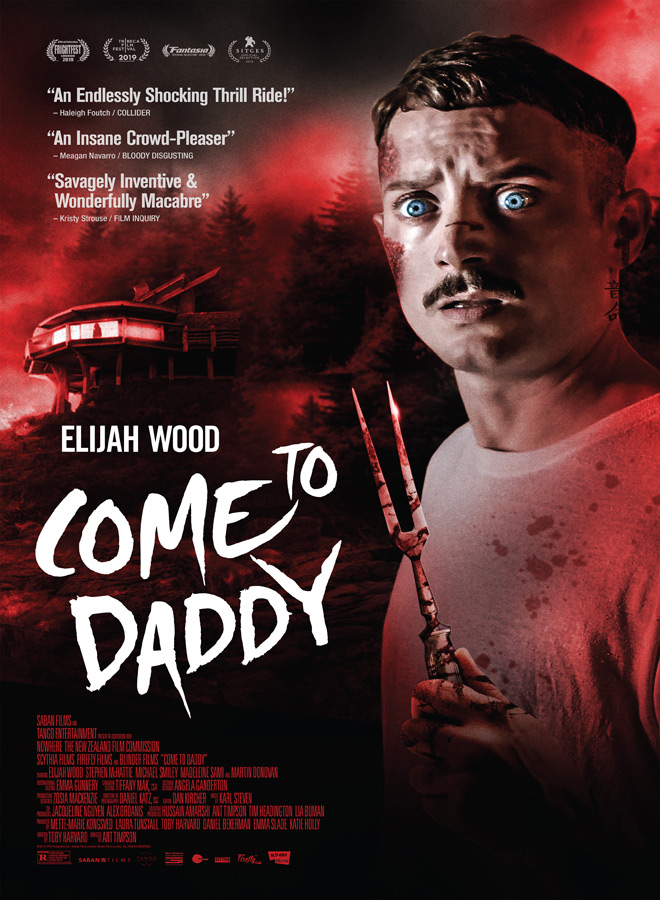
Cryptic Rock – Yes, Elijah might have one of the most likable presences on screen so it’s always amazing to see him go against the grain playing these type of characters. Trust is the number one thing when getting the best out of an actor, so not surprised he gives one of the best of his career in your film. You’re clearly a genuine lover of film and cult films in particular. Can you give us a brief history of The Incredibly Strange Film Festival’s origins? Was it inspired by Jonathan Ross’ The Incredibly Strange Film Show at all?
Ant Timpson – Loved that Ross show but it was inspired by the ReSearch book actually – I got permission from the editors to call it that. The origin goes back to the Bad Taste Film Festival in 1987 that I helped program and execute. It played recent titles like Blood Diner (1987), Surf Nazis Must Die (1987), Mondo New York (1988) – I got prints of old exploitation like Hot Spur (1968) and The Zodiac Killer (1971). It played at a cool arthouse theater that I ended up being manager of, and that’s when, years later, I thought I could do something that was more along the lines of my taste.
So, in 1994, I created the ISFF and it really became a cultural phenom back in NZ; it changed the landscape there because no one was giving these types of films any kind of theatrical exposure. It crossed over to mainstream once we started having censorship battles, as well. It became headline news often. It was a boatload of fun. It still goes to this day but the wild circus nature of the early years has definitely become more mannered and mild. It was crazy fun in the early days. We four-walled and took over venues. It was very successful and used to travel the country playing, I think, one year to seven cities.
Cryptic Rock – Blood Diner is a favorite of many Horror fans. It’s rare to find directors that come from this type of background, let alone, producers. You are clearly a genuine fan and extremely genre literate. New Zealand has given birth to some terrific filmmakers (i.e. Peter Jackson, Andrew Dominik, Taika Waititi, Jane Campion). What do you think it is about New Zealand that produces such bizarre and wonderful points of views on the world?
Ant Timpson – I don’t think there’s anything about this country that sets people up to be filmmakers of note. All those people – Dominik is really an Aussie – had very diverse backgrounds and approaches into the creative world; there’s nothing that joins them together except geography. The actor Sam Neill made a documentary about NZ film and called it the Cinema of Unease – that was how some summed up what was being made down here for decades.
Overall, I think NZ has punched above its weight cinematically. I feel for a population our size we’ve had a great number of successful directors, many of whom have flown the coop to greater glory offshore. There’s a generation of kiwis ingrained that they have to be the best in the world. A lot of this came from Hillary, and topping Mt. Everest, and his phrase “I knocked the bastard off” – which I guess was a rallying cry for the country to believe that any kid could achieve greatness on the world stage.
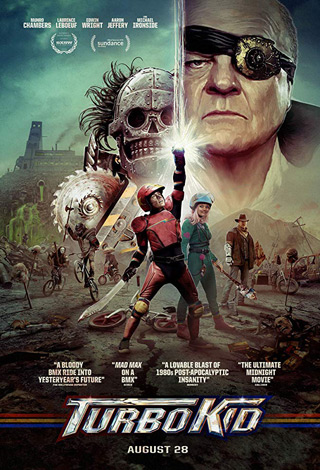
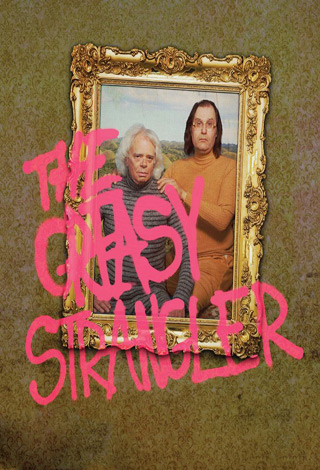
Cryptic Rock – Yes, New Zealand is creating this new wave of genre storytelling that is only going to get stronger and more nuts as the years go by. It is said that you own an enormous private collection of 35mm film prints. Have you ever held your obsession under a magnifying glass and counted how many you actually own? Lists change like the wind, but do you have a top 5 that you consistently go back to for inspiration?
Ant Timpson – Between my brother and myself we house thousands of prints, and one day it’ll be cataloged but it’s a slow process. Just glad they get shown on screens around the world and that we’re doing our part in keeping film alive. A top 5 prints I own list? Here’s 5 I love: The Naked Prey (1965), Manos: Hands of Fate (1966), Blast of Silence (1961), The Love Butcher (1975), The Taking of Pelham One Two Three (1974).
Cryptic Rock – Nice. Those are titles everyone should check out. You comes across as a guy with endless ideas for insane movies. If you had an unlimited budget, what would be your ultimate, mega-dream project and why?
Ant Timpson – My mega-dream project would be to turn back the clock and film and make an ’80s sequel called VICE SQUAD : NYC shot on the Deuce.


